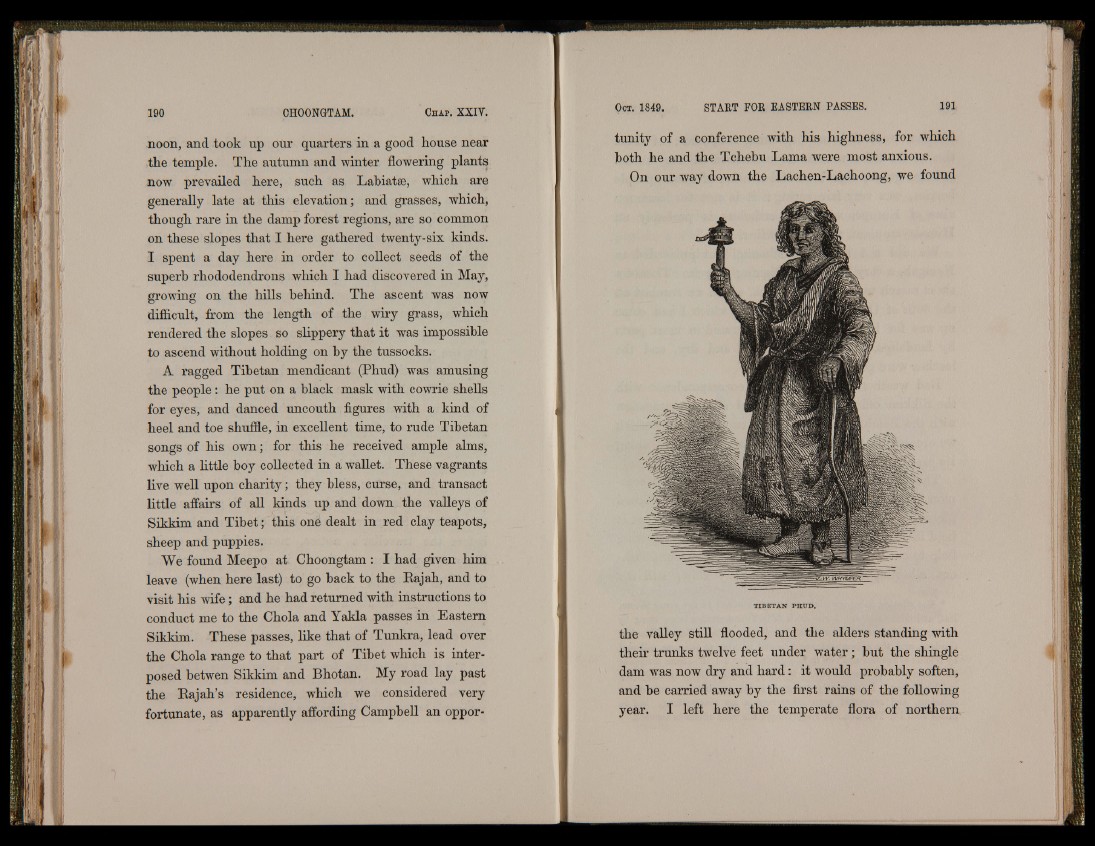
noon, and took up our quarters in a good house near
the temple. The autumn and winter flowering plants
now prevailed here, such as Labiate, which are
generally late at this elevation; and grasses, which,
though rare in the damp forest regions, are so common
on these slopes that I here gathered twenty-six kinds.
I spent a day here in order to collect seeds of the
superb rhododendrons which I had discovered in May,
growing on the hills behind. The ascent was now
difficult, from the length of the wiry grass, which
rendered the slopes so slippery that it was impossible
to ascend without holding on by the tussocks.
A ragged Tibetan mendicant (Phud) was amusing
the people: he put on a black mask with cowrie shells
for eyes, and danced uncouth figures with a kind of
heel and toe shuffle, in excellent time, to rude Tibetan
songs of his own; for this he received ample alms,
which a little boy collected in a wallet. These vagrants
live well upon charity; they bless, curse, and transact
little affairs of all kinds up and down the valleys of
Sikkim and T ib e t; this one dealt in red clay teapots,
sheep and puppies.
We found Meepo at Choongtam : I had given him
leave (when here last) to go back to the Rajah, and to
visit his wife; and he had returned with instructions to
conduct me to the Chola and Yakla passes in Eastern
Sikkim. These passes, like that of Tunkra, lead over
the Chola range to that part of Tibet which is interposed
betwen Sikkim and Bhotan. My road lay past
the Rajah’s residence, which we considered very
fortunate, as apparently affording Campbell an opportunity
of a conference with his highness, for which
both he and the Tchebu Lama were most anxious.
On our way down the Lachen-Lachoong, we found
TIBETAN PHUD.
the valley still flooded, and the alders standing with
their trunks twelve feet under water; but the shingle
darn was now dry and h a rd : it would probably soften,
and he carried away by the first rains of the following
year. I left here the temperate flora of northern